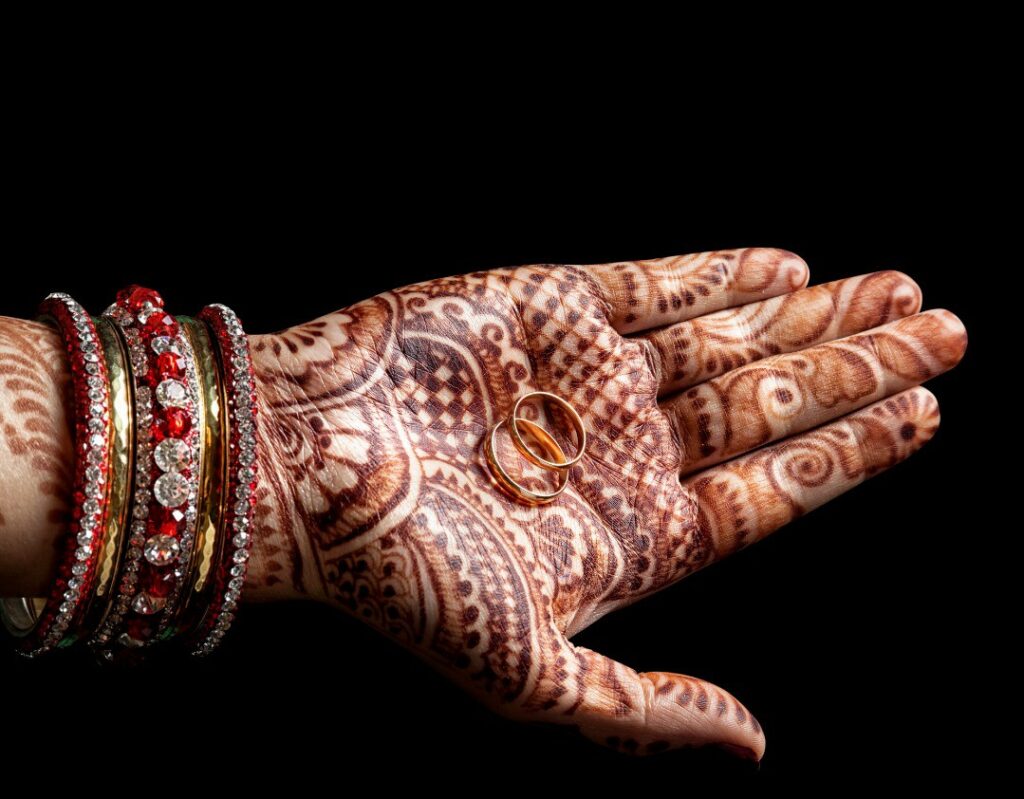If we spend so much on her education, how will
we pay for her wedding?
An investment in education will never give you a loss.
by Eeshrita Jog

It was a hot summer day when I sat by the balcony with my friend, both of us eagerly discussing the multiple plans we had for the vacations. The list of activities to choose from was extensive, but with graduation looming so close, we knew that participating in events that could help us develop a better-rounded CV was essential. Science is a costly field to be in, with little internships being available for undergraduate students; hands-on workshops were the go-to activity for experience. My friend looked up the price of a particularly interesting listing and asked her father if she could go there with me for the summer. “If we spend so much on your education, how will we pay for your wedding?” I heard my friend’s father teasingly ask his teenage daughter, his eyes twinkling with mirth as she grumbled her annoyance at the rhetorical question. Growing up in a household where education was always the first priority, my friend had never been stopped from pursuing her passion, and her roles in society had never been determined by her gender. But unfortunately this statement doesn’t hold true for millions of young girls across the globe that are still expected to leave their career behind for the idea of marriage.
Men are often subjected to the pressure of being the future breadwinner of the family very young, and women are simply expected to marry into a good family. Especially in India, the idea of educating girls and driving them to excellence in various career fields in order to make them financially independent and successful is often placed on a backburner over other costs. The custom of the bride’s side paying for weddings is prevalent across multiple cultures and countries, placing an extremely heavy burden on parents who want to uphold their image in front of the groom’s family and the multiple acquaintances that attend weddings on the promise of lavish catering. An average middle class Indian wedding can cost anything between 10–50 lakh of rupees, which is more than the annual income of a majority of Indians citizens, so parents start saving early.
Families assume that their daughters will get married and that they will be burdened with the hefty expenditure that accompanies the event, but there is a rise in the number of women choosing to put their career before familial relationships. A study conducted by the creative marketing agency Hill Holliday showed that four times more single American women are prioritising building their professional career over having kids. And if a woman does choose to get married after or while establishing a career, they can pay for it by splitting costs with their future spouse. An investment in education is something that will never give you loss, each experience teaches us something that will be used at least once in your lifetime. Educate your daughter and help her grow as a person, don’t groom her for marriage.
The generational accumulation of the financial stigma associated with having a girl child has had such a wide and deep-seated impact that it will take many years for the negative taint to be erased due to an unceasing domino effect. Amniocentesis, that is pre-natal sex determination, was banned in India in 1994 because the government realised that the male to female sex ratio in the country was imbalanced due to the rise in female infanticide. This was caused mainly due to families expecting an immense financial pressure of having to pay a dowry and marry off their daughters, which was inconvenient for those living in poverty that needed more earning family members. Those who did have girl children were hesitant to educate them because they doubted their capability of getting a well-paying job, and also worried that if their daughters were more educated than prospective grooms, they wouldn’t get many proposals. A study conducted showed that the odds of women marrying below their education level were 27% higher in the 1990s and 28% higher in the 2000s when compared to marriages in the 1970s and 1980s due to the slowly changing mindset of the community. Bias against a girl’s academic dreams starts before they are born, and continues throughout their life. As a toddler they are gifted kitchen sets, as teenagers they are asked to learn to cook meals for their future in-laws happiness, and as married women they are expected to give up their career to bring up their children. These preconceived notions are known to affect their goals in their workplace and provide a hindrance to promotions.
Our parents shape us to be people we are, but if their worries and focus lies in our hypothetical marriage, how are we supposed to desire excelling in the workforce? Early financial and emotional support for education is very important. It helps promote forward-thinking by trying to get rid of the archaic thought that daughters need to get married, and instead promotes the ideology that financial independence is a prerequisite to any and all stages of an adult woman’s life. Initial and continued access to resources allows women to make well informed and well thought out decisions for their career, to turn aspirations turn into planned actions. Having a supportive network of friends and family who are ready to listen to your wishes, and not pressurise you to make decisions based on what society expects over what you long for is crucial. Don’t allow outdated mentalities to influence your career decisions and instead reach out to those from a community you wish to join, and to those who inspire you to soar beyond the clouds. Significant growth can be obtained by learning from their and your own experiences to make yourself the best version you can be and liberate yourself from financial constraints by earning and funding your own goals. I come from a position of privilege where my family has always encouraged my sister and I to put our careers first and have tried their best to provide us with all the education and career resources that they can to make us financially independent, and that is something I believe encourages me to do better every single day.
That hot summer afternoon my friend and I registered for the genetics workshop. “Before anything else, I want to make you and myself proud, and I can only achieve that by cultivating my skills and working hard at everything I do.” Saxena’s daughter smiled at her father who looked delighted at his daughter’s reply. “After I fulfil my aspirations and become an inspiration to many others, if I want to marry someone, I’ll pay for my own wedding, you don’t need to worry about that papa!”
*name changes and creative liberties taken*
References:
1. Wedding cost: https://loantap.in/blog/what-does-an-indian-wedding-cost-budget-breakdown/
2. Female infanticide: https://en.wikipedia.org/wiki/Female_infanticide_in_India#:~:text=Poverty%2C%20the%20dowry%20system%2C%20births,of%20female%20infanticide%20in%20India.
3. A study conducted showed that the odds of women marrying below their education level were 27 percent higher in the 1990s and 28 percent higher in the 2000s when compared to marriages in the 1970s and 1980s(source: bloomberg quint).
Our Communities
We’d love to hear your thoughts too.
Be a part of the conversation and exchange of ideas by joining our community.
Submit a Comment
Our communities
Upcoming events
Can’t get enough? Explore our upcoming events and register to attend as many of them as you like.
Categories
Trending Posts
Recent posts
Buzzing right now
There’s a lot going on in these communities
at the moment. Join them now, as a member
or as a supporter.
SheDares
EntrepreNaari
NotAlone

